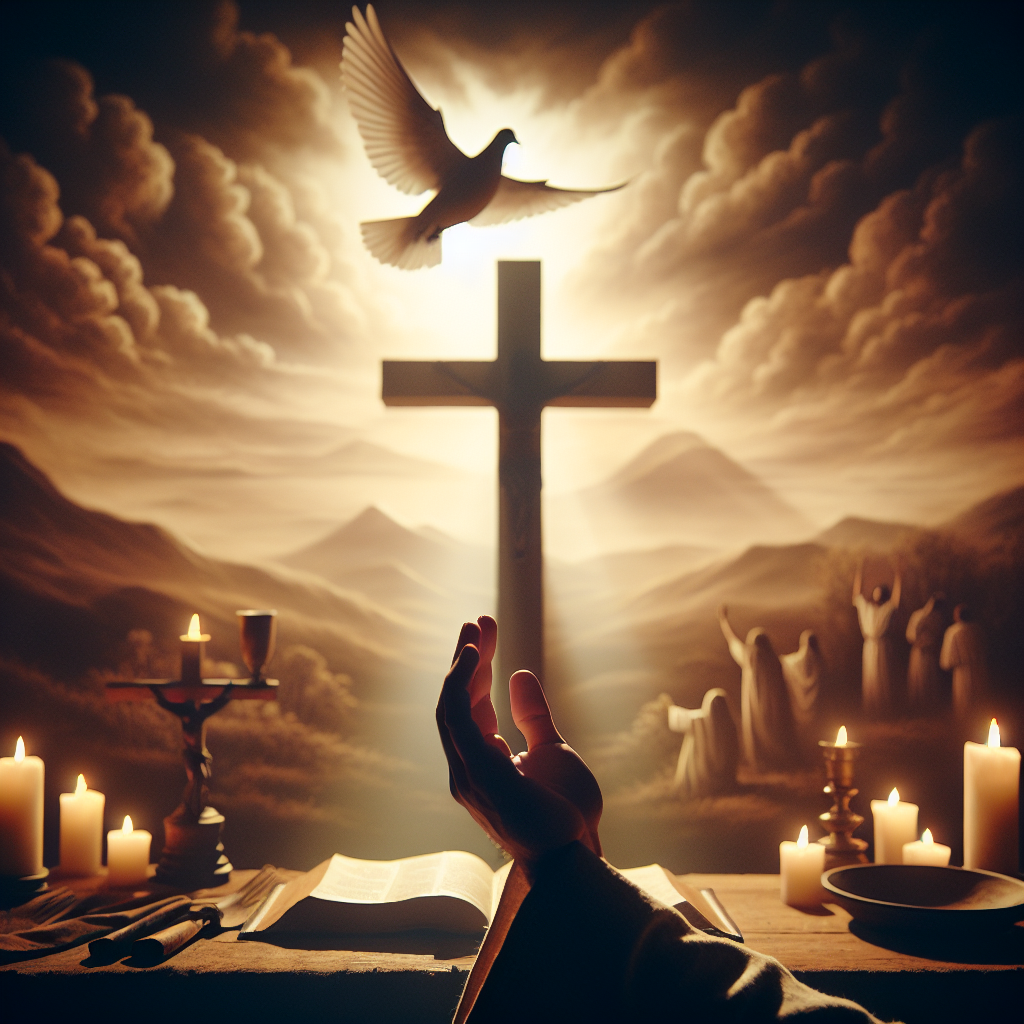Unveiling Divine Wisdom Through "Chronicle of a Death Foretold"
Have you ever encountered a story that, despite its tragic narrative, reveals deeply rooted truths about human nature and morality? Gabriel García Márquez’s “Chronicle of a Death Foretold” is one such tale. While its dark themes might appear distant from the Bible at first glance, a closer look unveils significant parallels and divine wisdom. Join us on this insightful journey as we explore how themes from this classic literary work intertwine with biblical principles.
Parallel Worlds: Observance and Accountability
In “Chronicle of a Death Foretold,” the anticipation of Santiago Nasar’s death is an open secret among the townspeople. Yet despite knowing what is to come, no one intervenes to prevent the impending tragedy. This phenomenon speaks volumes about societal observance interlaced with apathy, mirroring themes of personal responsibility.
Similarly, the Bible emphasizes the importance of watching over others with care and responsibility. Ezekiel 33:6 (NIV) tells us, “But if the watchman sees the sword coming and does not blow the trumpet to warn the people, and the sword comes and takes someone’s life, that person’s life will be taken because of their sin, but I will hold the watchman accountable for their blood.”
Reflect on the following:
– Are there areas in your community where you’ve noticed an issue but have hesitated to intervene?
– How can we take actionable steps to act as caring watchmen in our communities today?
The Weight of Honor: Familial and Social Obligations
Honor is a driving force in Márquez’s narrative. The Vicario brothers felt bound by their cultural and familial obligations to restore their sister’s honor by taking Santiago’s life. This sense of duty, while misguided, highlights how honor and shame can dictate actions.
In contrast, the Bible shifts our understanding of honor from one based on societal expectations to one deeply rooted in divine principles. Proverbs 3:9 (NIV) advises, “Honor the Lord with your wealth, with the firstfruits of all your crops.” Also, the New Testament teaches us about honoring others selflessly (Romans 12:10), guiding us towards actions that edify and uplift.
Consider these questions:
– How do you define honor in your life?
– Are there situations where cultural or societal demands conflict with godly principles of honor in your experience?
Forgiveness and Redemption
The characters in “Chronicle of a Death Foretold” are trapped in a cycle of vengeance and retribution, unable to escape the societal norms that demand payback. This raises questions about forgiveness and the true path to redemption.
Jesus taught us the power of forgiveness, urging us to forgive not just once but seventy-seven times (Matthew 18:21-22). The Apostle Paul also reminds us in Ephesians 4:32 (NIV), “Be kind and compassionate to one another, forgiving each other, just as in Christ God forgave you.”
Reflect on these insights:
– What role does forgiveness play in your life when dealing with personal or societal wrongs?
– How can we cultivate a spirit of forgiveness that goes beyond cultural retribution?
Stewardship of Truth
Márquez’s narrative underscores the consequences of a community’s collective silence and failure to act on known truths. The fatal outcome is aggravated by the townspeople’s reluctance to confront reality.
In biblical teachings, truth holds paramount importance. Jesus declared, “I am the way and the truth and the life” (John 14:6 NIV). Furthermore, we are encouraged to live by the truth, fostering a culture where truth prevails over deceit.
Ponder the following:
– How do you handle situations where you are aware of a truth that could significantly impact someone’s life?
– What practices can we adopt to strengthen our commitment to truth in our daily lives?
Conclusion and Call to Action
“Chronicle of a Death Foretold” and the Bible, though distinct in their narratives, both compel us to reflect deeply on themes of responsibility, honor, forgiveness, and truth. By aligning our actions with godly principles, we not only enrich our lives but also positively impact our communities.
Let’s make it a point to act as watchmen, uphold godly honor, earnestly forgive, and courageously speak the truth. I invite you to share your thoughts and experiences in the comments below—how have you navigated these themes in your life? Additionally, share this article with friends and family who could benefit from this rich blend of literary and biblical wisdom.
By intertwining Márquez’s poignant tale with divine teachings, we uncover a path that leads to both personal growth and communal harmony. Let’s journey together, learning and growing through stories and scriptures alike.
Incorporate these lessons into your daily walk of faith, and witness the transformation in how you perceive and fulfill your divine calling. Let’s continue to encourage and uplift one another as we align our lives with God’s eternal wisdom.
If you want to learn how ANY book relates to Biblical principles, please try our Books and Scripture GPT. Simply type in the name of a book and let it show you insights you might not have been aware of!


